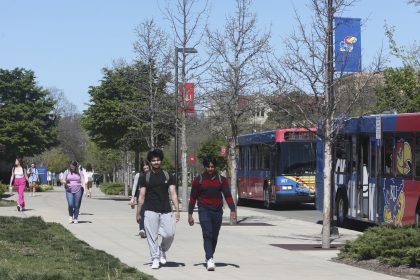LGBTQ Workers Win State-Level Protection in Texas

DALLAS — Texas’ Fifth District Court of Appeals ruled Thursday in favor of a former Tarrant County College District employee who claimed she was fired from her job after disclosing her sexual orientation to a supervisor.
Amanda Sims alleged in her discrimination suit against the district that she was fired after she revealed she is lesbian to her supervisor and coworkers when she served as a member of a TCCD committee addressing diversity issues, according to the text of the ruling.
Sims said she began experiencing hostile treatment from the supervisor, who “expressed religious views that held homosexuals in a negative light,” following the revelation. Sims had received above-average performance evaluations throughout her three-year employment with TCCD, at one point even receiving the “Chancellor’s Excellence Award” for her work.
“The Texas 5th Circuit Court of Appeals made the right decision today — legally and morally,” Jason N. Smith, Sims’ lead attorney, said in a written statement. “It has been an honor to work on this case and fight on behalf of LGBTQ Texans. It’s an honor to represent someone as courageous as Amanda Sims, whose stand against discrimination has resulted in statewide employment protections for LGBTQ Texans.”
The court ruled that Sims’ complaint could be brought under the Texas Commission on Human Rights Act, or TCHRA, although the state’s constitution does not protect individuals from discrimination based on sexual orientation. Further, while Texas labor codes on unlawful employment practices do prohibit discrimination based on sex they make no specific mention of sexual orientation.
In January, the Human Rights Campaign filed an amicus brief to the court on Sims’ behalf. The organization, one of the nation’s largest LGBTQ advocacy groups, was represented in the brief and in oral arguments by Winston & Strawn LLP.
“Today, we celebrate this landmark decision alongside the Texas LGBTQ community — who, for far too long, have had to enter the workplace in fear of facing discrimination for who they are,” Alphonso David, president of The Human Rights Campaign, said in a written statement.
“I applaud the plaintiff, Amanda Sims, for her bravery and our legal partners for their impressive work. Let this ruling stand as a beacon of hope to the other states in the United States that are still fighting for basic state-wide non-discrimination protections.”
In its appeal, TCCD argued Sims’ claim of “being discriminated against on the basis of her sex and gender stereotyping” was indeed “covered under the TCHRA,” but no Texas court had ruled whether the TCHRA protected her “status of sexual orientation.”
Because no Texas court had yet addressed whether the statute could be interpreted as prohibiting discrimination based on sexual orientation, the court looked for a federal precedent to base its ruling on. In June 2020, the United States Supreme Court issued its opinion affirming LGBTQ workers’ protections in the case Bostock v. Clayton County, Georgia.
In its ruling, the Supreme Court reasoned the Civil Rights Act of 1964 encompasses broad prohibitions on discrimination, concluding “an employer who fires an individual merely for being gay or transgender defies the law.”
The appeals court ruled to reconcile interpretations of the TCHRA with federal anti-discrimination and retaliation law under the Bostock ruling. The court, therefore, ruled that the law prohibiting discrimination based on sex also applies to discrimination based on sexual orientation, marking a significant milestone for LGBTQ advocacy groups.
“We are proud to have worked alongside the dedicated litigation team at The Human Rights Campaign throughout the duration of this appeals process and could not be more satisfied with the court’s opinion,” Natalie Arbaugh, partner at Winston & Strawn, said in a written statement. “The law is clear — the Bostock ruling must be applied in every state without explicit non-discrimination statutes, just as it was today in Texas.”






















